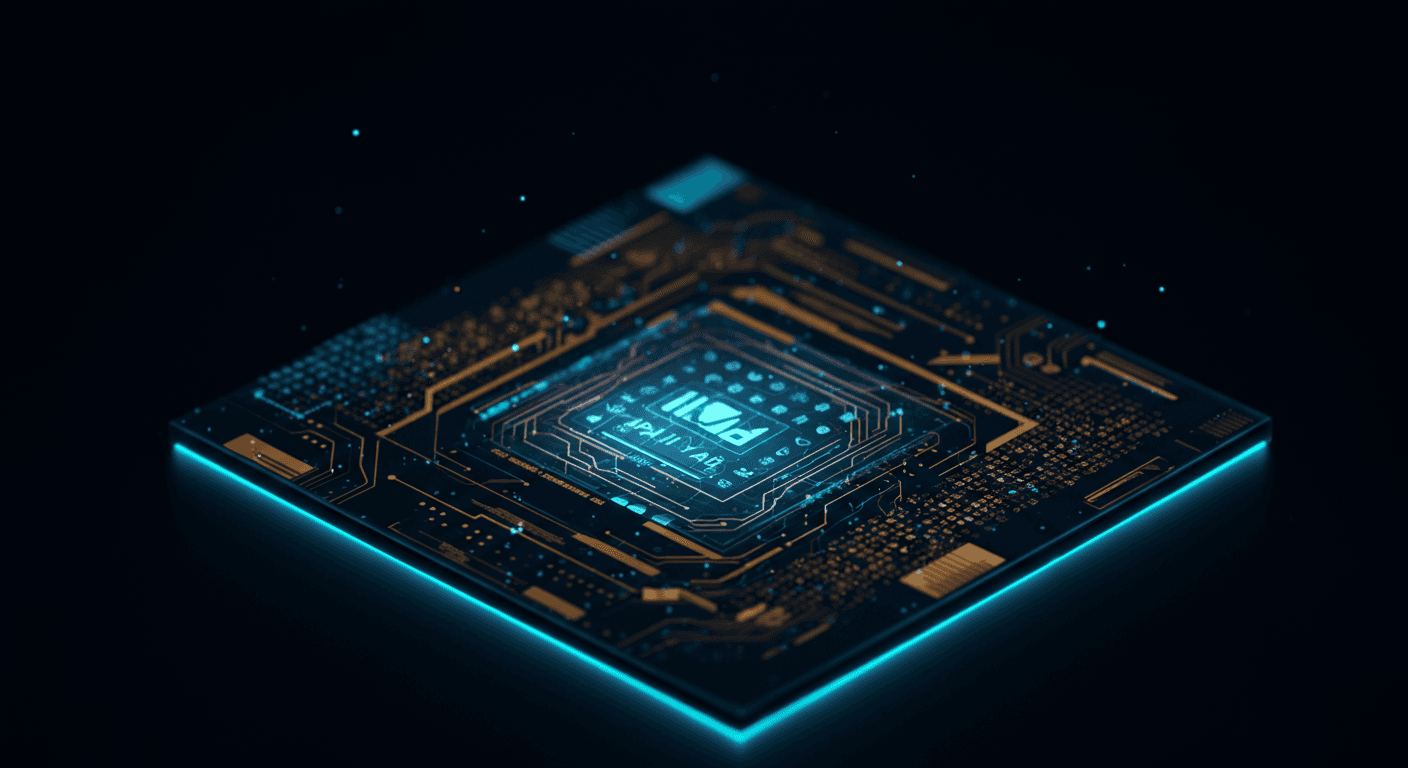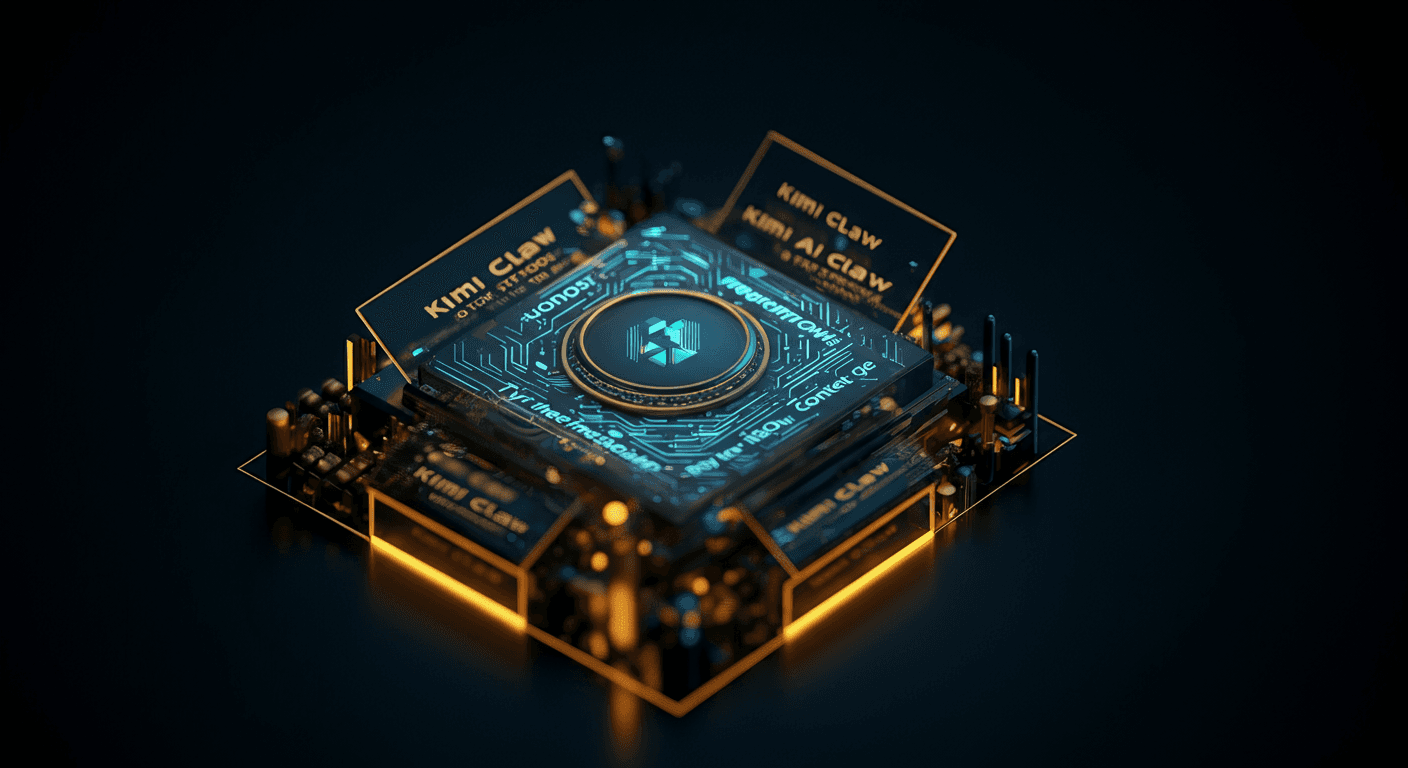Beyond Short-Term: How Advanced Memory Frameworks Are Revolutionizing AI Agents

AI agents are rapidly evolving, but a major hurdle remains: remembering what they've learned.
The AI Memory Bottleneck: Why Current Systems Struggle with Reality
Traditional AI memory models are a bit like goldfish; they can only recall recent interactions, quickly losing crucial context. This severely limits their ability to operate effectively in dynamic, real-world environments.
- Limited Context Retention: Current AI systems often lack the ability to retain context over extended periods. This 'forgetfulness' is not a feature, but a fundamental limitation.
"The biggest problem with AI right now is its attention span... or lack thereof."
Impact on AI Agents
This "AI forgetfulness" impacts decision-making and learning, rendering them less reliable and adaptable.
- AI Assistants Forgetting Instructions: Ever had ChatGPT conveniently "forget" earlier parts of a conversation? It's not being difficult, it's just hitting its memory limit! This powerful conversational AI is designed to provide human-like responses, but like all AI, struggles with maintaining long-term memory.
- Self-Driving Cars Missing Long-Term Cues: A self-driving car that fails to anticipate a traffic jam forming a mile ahead due to a previous accident is not truly autonomous.
The Stakes
Without improved memory frameworks, we risk deploying AI agents that are powerful, but ultimately unreliable in scenarios demanding complex reasoning and contextual awareness. The implications for industries like healthcare, finance, and transportation are significant. It's time to give AI a proper memory – one that rivals (and hopefully surpasses) our own.
Here's a thought: What if AI could truly remember?
Introducing Advanced Memory Frameworks: A New Paradigm for AI Cognition
Advanced memory frameworks represent a leap beyond the limitations of traditional AI, empowering agents to learn and reason more like humans. Unlike simpler systems that primarily focus on immediate tasks, these frameworks integrate different types of memory to handle complex, evolving scenarios.
Core Components
These frameworks are built on a foundation of interconnected memory systems:
Episodic Memory: Think of it as the AI's personal diary, recording specific events and experiences. For example, if an AI learns to navigate a virtual maze, episodic memory stores the path it took, the challenges encountered, and the solutions discovered. This memory type lets an agent recall what happened* in particular situations. Semantic Memory: The AI's encyclopedia, storing general knowledge and facts about the world. This might include the definition of gravity or the capital of France. Semantic memory enables an AI to understand the meaning* of concepts and relationships.
- Working Memory: The AI's scratchpad, holding information that it is actively using and manipulating. Working memory is essential for planning, problem-solving, and decision-making. It is closely tied to attention.
Key Differentiators
Traditional AI memory models often relied on simple look-up tables or basic recurrent networks. Advanced frameworks, however, offer significant improvements:
- Contextual Understanding: They are much better at grasping the subtle nuances and relationships within the data.
- Long-Term Dependencies: Handle dependencies that extend far back in time.
- Reasoning Abilities: Enable AI agents to draw inferences and make predictions based on past experiences.
Evolving Architectures
Several architectures have paved the way for advanced memory frameworks:
- Differentiable Neural Computers (DNCs): These neural networks possess an external memory bank, which they can read from and write to, enabling them to learn and manipulate complex data structures.
- Memory Networks: These networks explicitly store and retrieve information from a memory component, allowing the AI to focus on relevant information for a given task.
The future of AI agents depends on their ability to learn from the past; advanced memory frameworks are the key to unlocking this potential. These frameworks will be essential as we move towards more complex and autonomous AI systems.
AI agents are evolving from simple chatbots to sophisticated problem-solvers, and advanced memory frameworks are the secret sauce.
Key Innovations: The Building Blocks of Real-World AI

Modern AI agents aren't just reacting; they're learning, remembering, and reasoning—all thanks to cutting-edge memory frameworks. What's fueling this revolution?
- Attention Mechanisms: Mimicking human focus, these mechanisms let AI models prioritize relevant information from a vast sea of data. Think of it as the AI version of highlighting the most important sentences in a textbook. Learn about attention mechanisms in AI to understand the specifics.
- Transformer Networks: These networks, like those behind ChatGPT, use self-attention to weigh the importance of different parts of an input sequence. This has been especially transformative for language tasks, allowing models to understand context and nuance with unprecedented accuracy.
- Graph Neural Networks (GNNs): GNNs represent information as a network of nodes and edges, enabling AI to reason about relationships between entities. > Imagine a social network where you can ask: "Who is most likely to be influenced by this piece of news?"
Overcoming the Forgetting Curve
A major hurdle? Catastrophic forgetting. When an AI learns something new, it can overwrite old knowledge. Solutions include:
- Continual Learning: Training models to sequentially learn new tasks without forgetting old ones. It's like going back to school without losing the skills you gained from your previous job.
- Replay Buffers: Storing past experiences and replaying them during training. > Imagine a student reviewing old exam questions to prepare for the final.
Augmenting Memory with External Knowledge
AI agents aren't limited to internal data; memory augmentation allows them to tap into external knowledge sources to boost their understanding. For example, an AI assistant might query a real-time database to answer questions about current events. Consider exploring a Search Discovery AI Tool to discover tools that incorporate external data for improved AI performance.
By combining these techniques, we're building AI agents with robust, adaptable memories—essential for tackling complex, real-world challenges. The future of AI is about more than just speed; it's about intelligent recall.
Imagine AI agents that not only respond, but remember, reason, and evolve. That future is closer than you think thanks to advanced memory frameworks.
Applications: AI Agents That Learn, Adapt, and Solve Complex Problems

AI's utility isn't just about spitting out answers; it's about creating systems that can truly learn and adapt. Memory frameworks are the secret sauce, enabling AI agents to tackle problems previously deemed impossible.
- Robotics: Imagine robots that don't just execute pre-programmed tasks. They can learn from mistakes, adapt to new terrains, and collaborate with humans more seamlessly. This tech could power advancements in manufacturing, exploration and even elder care.
- Autonomous Driving: Forget simply navigating streets; memory-enhanced AI in self-driving cars lets them learn from near-misses, remember challenging intersections, and react instantly to unexpected events. This greatly enhances safety and efficiency.
- Healthcare: Personalized medicine is being revolutionized using AI agents. They can remember a patient’s medical history, understand responses to treatments, and adjust care plans in real-time. Plus, Lunit can help to scan for a number of different cancers and issues.
- Finance: AI can analyze market trends, remember past investment decisions, and adapt to changing economic climates. This results in smarter trading and reduced risk. Trend-Rocket is another great way to evaluate trends, for example.
Personalization is Key
The ability for AI to recall specific details allows for highly personalized experiences. Imagine customer service agents that actually remember your past interactions, or learning tools that tailor themselves to your individual learning style.These memory frameworks allow AI to move beyond simple automation and offer genuinely intelligent, adaptive solutions. It’s like giving AI a brain with a great memory, and who wouldn't want that? Let's continue exploring how AI agents will affect AI applications and AI in robotics.
The accelerating sophistication of AI agents capable of remembering past interactions and learned information throws open a Pandora's Box of ethical dilemmas that demand careful consideration.
Data Privacy and AI Memory
AI agents with advanced memory frameworks rely on vast quantities of data to function, inevitably raising questions about data privacy.
- Think of an AI-powered medical assistant: to provide accurate diagnoses and personalized treatment plans, it needs access to a patient's medical history, lifestyle habits, and genetic information.
- Now, imagine if this sensitive data were compromised or used for unintended purposes – the consequences could be devastating.
Bias Amplification and Manipulation
AI agents are trained on existing datasets, and if these datasets reflect societal biases, the AI agents will likely perpetuate and even amplify them.
- For example, if an AI recruitment tool is trained on historical hiring data that favors men, it may inadvertently discriminate against female applicants.
- Moreover, AI agents with the ability to "remember" and learn from past interactions could be used to manipulate or deceive humans by exploiting their vulnerabilities and biases.
The Need for Responsible AI
Navigating these risks requires a commitment to responsible AI, ensuring AI systems are developed and deployed in a way that is ethical, transparent, and accountable. We need:
- Transparency: Making AI decision-making processes clear and understandable.
- Accountability: Establishing mechanisms for redress when AI systems cause harm.
- Fairness: Ensuring AI systems treat all individuals and groups equitably.
Okay, let's dive into the future of AI memory – buckle up, folks!
The Future of AI Memory: Trends and Predictions
Current AI excels at specific tasks, but struggles with continuous learning and long-term retention – that's about to change, and in dramatic fashion.
Emerging Trends
- Neuromorphic Computing: Mimicking the human brain's structure, these systems offer vastly improved energy efficiency and parallel processing. Imagine AI agents that learn and adapt more like us, without the massive power consumption.
- Holographic Memory: Think of Star Wars – but real! Storing data in 3D within crystals allows for incredible storage density and fast access speeds. For AI, this translates to instant recall of vast datasets.
- Quantum Memory: Leveraging the principles of quantum mechanics, this offers unparalleled storage capacity and processing power. > "Quantum memory will enable AI to tackle exponentially more complex problems, making current limitations seem quaint."
- Persistent Memory: Bridging the gap between RAM and storage, offering the speed of RAM with the persistence of SSDs. It ensures that AI agents can instantly access previously learned data, leading to more seamless and informed decisions.
Shaping the Future and Societal Impact
- Enhanced Cognitive Abilities: Expect AI agents with near-perfect recall, capable of complex reasoning and problem-solving across vast datasets.
- Human-like or Superhuman Memory Capabilities: Imagine AI tutors that remember every student interaction or AI doctors with instant access to all medical knowledge – the potential benefits are staggering. But with great power... well, you know the rest.
Here's the key to unlocking the true potential of AI: memory.
Getting Started with AI Memory Frameworks: Tools and Resources
Ready to dive into the world of advanced AI memory? Here's your curated guide to open-source libraries, datasets, and learning resources:
Open-Source Libraries and Frameworks
- LangChain: LangChain is a framework for developing applications powered by language models. It can be used to create AI agents with advanced memory capabilities.
- LlamaIndex: LlamaIndex (formerly GPT Index) is a data framework to connect LLMs with external data. It provides tools to create persistent indexes of your data, a crucial element for long-term memory.
- FAISS (Facebook AI Similarity Search): A library for efficient similarity search and clustering of dense vectors, essential for retrieving relevant information from memory.
Datasets for Training and Evaluation
- bAbI dataset: A set of 20 synthetic tasks designed to test the reasoning abilities of question answering systems, with a focus on memory and inference.
- The WikiText-103 dataset: A large-scale dataset derived from Wikipedia, useful for training language models with long-range dependencies.
Tutorials, Courses, and Research Papers
- "Attention is All You Need": Foundational research paper introducing the Transformer architecture, which revolutionized AI memory.
- Online courses on Coursera and edX: Search for courses specifically covering "memory networks" or "recurrent neural networks" to gain a deeper understanding.
Keywords
AI memory, advanced memory frameworks, AI agents, episodic memory, semantic memory, working memory, AI cognition, neural networks, AI ethics, AI applications, real-world AI, AI memory limitations, context retention in AI, long-term dependencies, AI forgetfulness
Hashtags
#AI #ArtificialIntelligence #MachineLearning #AIMemory #DeepLearning
Recommended AI tools
ChatGPT
Conversational AI
AI research, productivity, and conversation—smarter thinking, deeper insights.
Sora
Video Generation
Create stunning, realistic videos & audio from text, images, or video—remix and collaborate with Sora 2, OpenAI’s advanced generative app.
Google Gemini
Conversational AI
Your everyday Google AI assistant for creativity, research, and productivity
Perplexity
Search & Discovery
Clear answers from reliable sources, powered by AI.
Cursor
Code Assistance
The AI code editor that understands your entire codebase
DeepSeek
Conversational AI
Efficient open-weight AI models for advanced reasoning and research
About the Author

Written by
Dr. William Bobos
Dr. William Bobos (known as 'Dr. Bob') is a long-time AI expert focused on practical evaluations of AI tools and frameworks. He frequently tests new releases, reads academic papers, and tracks industry news to translate breakthroughs into real-world use. At Best AI Tools, he curates clear, actionable insights for builders, researchers, and decision-makers.
More from Dr.Was this article helpful?
Found outdated info or have suggestions? Let us know!


